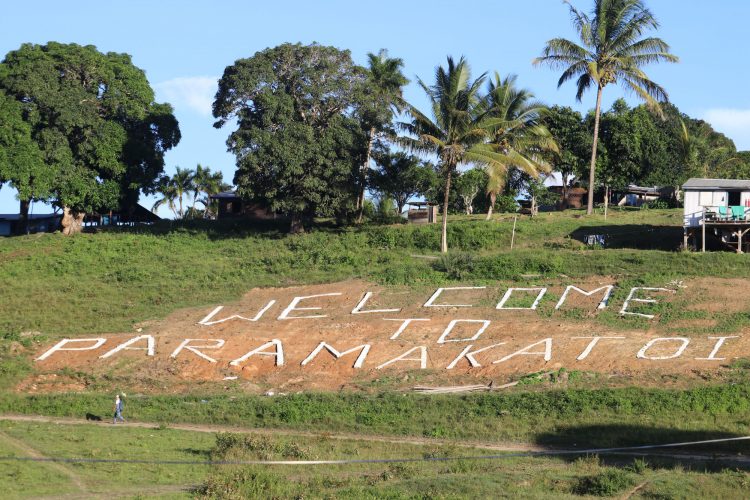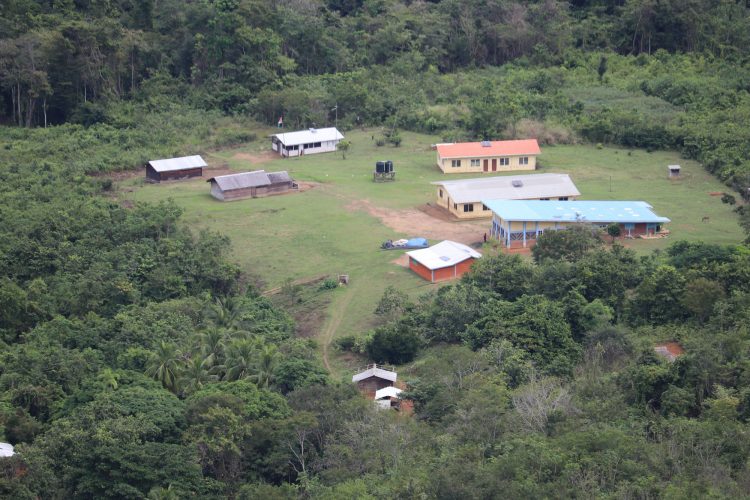The indigenous village of Paramakatoi in Region Eight (Potaro-Siparuni) has the distinction of being home to a nationally recognised nurse who has delivered over 1,700 babies and even after retirement, continues to lend her skills and services to the Indigenous Patamona people of the mountainous region.
Matilda Saigo Williams, 72, a retired nurse and midwife has twice been recognised at the national level for her outstanding contribution in the field of health by the Ministry of Indigenous Peoples’ Affairs.
She has assisted in the births of over 1,700 persons in Paramakatoi and even after retiring in 2013, continues to be the person her neighbours turn to when in need of a nurse or midwife. However, Williams was not always a nurse. As a matter of fact, she did not even plan to be a nurse and her entry into the field occurred by chance.

Williams was a schoolteacher and taught in Region Seven for five years, Paramakatoi for two years and in another place for three years before she assisted in delivering her first infant on August 10, 1977. Her last delivery was on August 12, 2019.
Williams grew up in Paramakatoi and after meeting her husband, remained in the hilly community, where the nights oftentimes come with a thick fog and it is so cold, you shiver at just the thought of stepping outside. At

the time, she said, people weren’t building homes because the village was on a hillside. The village is populated with people mainly of the Patamona indigenous nation and is named after a creek which is surrounded by Palamaka plants. In the Patamona language, toi is translated to savannah and the early Patamona settlers called the place Palamakatoi.
After missionaries settled there, they started calling it Paramakatoi. The village is nestled in a little savannah in the Pakaraimas Mountains and is home to several hundred persons. In this serene community, persons live off their own means, which mostly includes farming and construction work. To some city folk, walking to work might seem like an impossible and tedious task but for the people of Paramakatoi, walking miles to get to your farm or construction site is a norm they have lived with for years. Due to the bumpy nature of the trail, the most common means of transport is by foot or a motor vehicle sturdy enough to move about the uneven and often muddy tracks.
Relating her story to Stabroek News, Williams said that her journey as a nurse and midwife began when she was at another region interpreting for some ministers. A person had been bitten by a snake and being the only one available to understand the language spoken by the victim (Williams is multilingual), she was summoned to help with treatment. She treated the bite even though she was not nurse. At the time, she was a teacher and did not want to be a nurse. However, she decided to take up the career when a minister expressed the view that she should consider being trained as one.
In 1975, Williams started her training but recounted that she never liked being in a classroom unless she was the one teaching.
The newly-trained nurse was thrilled to leave Georgetown and return to work as a nurse in the village, but it proved to be a difficult task. The long distances to travel, the lack of professional assistance as well as medical supplies made her job all the more difficult but at the same time, it was worth it. During her first year as a nurse, Williams assisted in an extremely hard delivery, a breech birth, with the baby also being premature. The mother had given birth previously, two of whom were stillborn. This time the baby was in a breech position (when the baby’s bottom or feet is facing downwards in the womb prior to birth) but eventually it was a successful delivery, she recalled.
Of the difficulties Williams was faced with, one of the toughest was the distance. She said the only other nurse in the area was at Kato (several miles away from Paramakatoi) and so was the medic. So, alone, she had to look after all the patients in Paramakatoi. Another issue was the lack of transportation due to the hilly area.
Williams recounted the time when she had radioed for the medic from Kato and he had to come on foot. While waiting for medical back up, she was alone and had to treat the patient who was delivering twins. “He came walking, started out must be four o’clock in the morning and reach must be about eight,” she related. “Same time we send for a plane and the plane came. While we were carrying the patient to the plane, the baby came and it was a stillborn,” she sadly concluded. The retired nurse also spoke of a time when she had to go all the way to Kato for a delivery.
Nowadays, there have been some improvements in roads, transportation and other services. Unlike years ago when villagers had no electricity or water supply, there is now solar-powered electricity which is provided by the government but only comes on at a specific time: 3pm to 10pm daily. There is also a solar water pump which services the entire village. Additionally, schools and other institutions have been constructed for the benefit of the people.
Williams said that while her time as a nurse in the mountainous community has been a difficult one, she is proud of all of her deliveries and still receives thanks from the families and the persons she has delivered.






